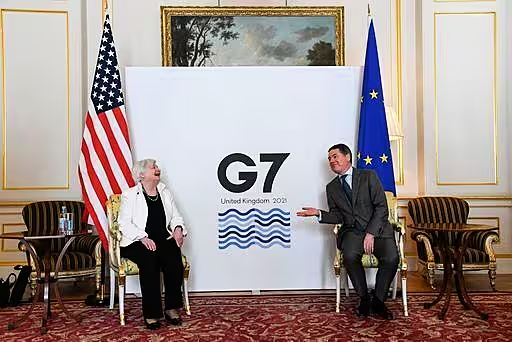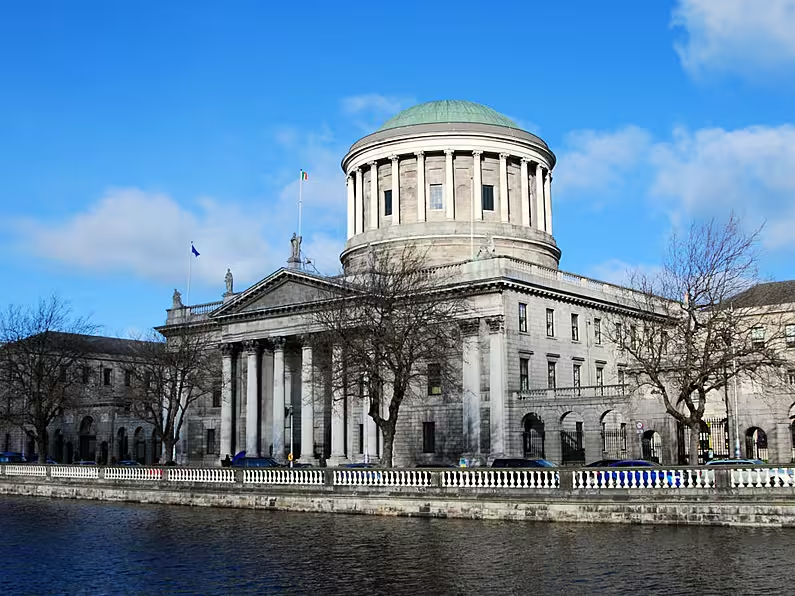James Cox
The recent G7 agreement on a 15 per cent global minimum tax has raised worries in Ireland due to the 12.5 per cent rate that has attracted many large multinational companies to set up here.
Almost 1,000 multinational companies are based in Ireland, many of them large American corporations.
The G7 proposal could see Ireland lose up to €2 billion a year in corporate tax revenue, according to estimates.
However, Minister for Finance Paschal Donohoe said this has already been built into the Government’s economic assumptions.
“That indicates that Ireland could lose up to a fifth of our overall corporate tax revenue and that potential loss of revenue is already used in our medium-term budgetary calculations,” he told The Irish Times.
Mr Donohoe has also made it clear that he believes that small countries must be factored into discussions on the 15 per cent rate.
Some in the United States have criticised Ireland’s 12.5 per cent rate, with a recent headline in popular US political website, The Hill, stating: “Ireland, loved by Biden, is obstacle to tax deal.”
However, that is not the view of all in the US.
Maury Peiperl, Dean of George Mason University’s School of Business in Virgina, told BreakingNews.ie: “No, I don’t see Ireland as an obstacle. I see Ireland as an example of the progress that a country can make, they’ve done well.
“Everybody loves the Irish success story going back 25/30 years about attracting business and flourishing in the European Union, really being a country that in some ways went out on a limb to attract companies.
Global economy
“My own view would be that Ireland has come a very long way and is more of a major player in the global economy. The conversation really is about the global economy and trade system. I don’t think the conversation globally is about the US or Ireland frankly.
“Obviously Ireland has the boundary condition of being at the 12.5 per cent, instead of the 15 per cent they’re talking about, but don’t forget there are a whole bunch of nations at zero, that’s a much bigger problem for the world.”
He also feels Mr Donohoe’s request of consideration for smaller countries will be met.
“It started with the G7, now they will have a G20 conversation. If we had to have a UN General Assembly unanimous decision we would never get anywhere on this sort of thing.
“I don’t think it’s going to be by means of exclusion, I think the idea should it go forward is that it happens by consensus and it happens by bringing one and other along, not so much by making exceptions as by helping to plot viable paths forward. For example one could do it in stages, or one could go just for the non-tangible assets first.”
While there are concerns about how the new rate could affect Ireland, Mr Peiperl feels it will help all countries when it is finalised.
“If you look at overall global decline in rates, and revenues, for all governments over a very long period it has hurt the physical and social fabric in most of the advanced countries and I don’t think that is sustainable.
“If you look at wealth disparity that’s also gone the wrong way over a long period.
It’s about fixing a long-standing global problem, Ireland’s not the problem.
“For most individuals the global tax policies, you can’t just go and declare yourself a resident of a tax haven on an island somewhere and stop paying taxes in your home country, that’s not allowed, as I can attest to having lived in three countries and paid taxes in all of them.
“It seems to be easier for corporations to duck some of that and that’s not right, I don’t think it’s an issue of the domain it’s an issue of the global system.”
He reiterated his view that Ireland is not seen as any obstacle to the new rate.
Time to adjust
Mr Peiperl also pointed out that companies and countries will be given time to meet the new rate, rather than an immediate demand.
“It’s about fixing a long-standing global problem, Ireland’s not the problem, Ireland has made a great deal of progress by setting a low rate, but still not a zero rate, and has probably come to a point where there is a way forward that gets you to the 15 per cent but does it over time or with other ways to continue investing.
“I have a feeling Ireland won’t be the only country trying to figure out what the way forward is given the overall global benefit, and it’s not just us paying everybody else and I don’t think it’s as clear cut and negative as us paying everyone else, it’s about everyone coming and saying, ‘ok, how do we apply some kind of level playing field here for all?’”
“That’s the main point here, it’s not that it has to be on any one country to go overboard or on the other hand that it can allow any one country to shelter all the profits of a company, that’s a good place to start frankly,” he added.
“The US government has been very careful to make it about the systemic issue rather than making it punitive in relation to specific companies.
“When people read news stories which says this company has made a massive profit, and hasn’t paid a dime in taxes, or has paid some tiny fractional number, they think something is wrong and that is the issue. It’s not ‘Ireland has taken our taxes,' I haven’t heard anybody talk in those terms.
“It’s more about, are the companies behaving in a way that is not just legal but fair, that I think is the conversation.”
While some have expressed fears that a new global minimum tax rate could lead to companies withdrawing their business from Ireland, Mr Peiperl feels this is unlikely.
“If you’re going to invest in a country, and this I think is one of Ireland’s accomplishments, that they really come and invest to hire people, build plants, and move the economy forwards in large swathes of the economy.
Apple
“That wasn’t the case in this Apple licensing deal, but it’s been the case over many years in much that has evolved in Ireland since they started this process.
“These are the sort of things you like to see: competition, ‘this is a great place to be’, not ‘here’s where you can duck paying tax’.
“Particularly if they have employees and operations etc, I don’t think they will leave, particularly since the idea is not to move operations and people across borders, the idea is to reduce stashing money and profits in places where they really shouldn’t be stashed.
“I think it’s unlikely, particularly if everybody is on the same level, the idea is to prevent companies exiting for tax reasons. No, I don’t think it will be a major issue. That would defeat the point of the consensus in the first place.”
While the move to a new minimum rate is likely to be played out in stages, Mr Peiperl said Ireland’s strong relationship with the United States would be an advantage.

US Treasury Secretary Janet Yellen with Eurogroup President Paschal Donohoe as finance ministers from across the G7 nations meet in London. Photo: Getty
“Secretary Janet Yellen [US secretary of the treasury] started this conversation but the reason it&r
squo;s going as far as it has is every one of the countries involved have felt the pinch of 30-40 years of declining corporate tax rate, and they all are keen to see something happen.
“I would say yes, Ireland will have the ear of Joe Biden, although it will not be entirely up to him, I would hope that it is a global consensus.
“All 50 states compete with one another, not least the one where President Biden is from the state of Delawere, so it’s a bit like the experience of small countries.
“I would encourage everyone in Ireland to have a look at the bigger picture, what makes the most sense for the global system, what is the level of fairness people are going for, how can we fit into that in a way that still works for us given how far we’ve come as Ireland absolutely has. I think President Biden would also encourage that conversation.”













